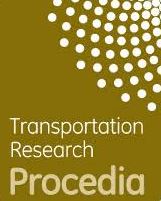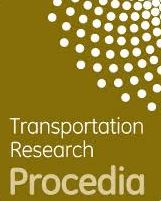Knowledge Hub
Understanding Travel Preferences for User-Based Relocation Strategies of One-Way Electric Car-Sharing Services
2021
Author(s): Curtale R, Liao F, van der Waerden P
This study looks into travel preferences for ECS and the willingness to collaborate with the ECS operators in user-based relocation strategies. To ensure balanced supply–demand of shared cars in the operational areas, ECS operators tend to explore user-based relocation strategies in addition to the costly operator-based ones.
Driving-Style-Oriented Multi-Objective Optimal Control of an Electric Vehicle
2018
Author(s): Yang C, Chen Lv, Shu H, Song Y, Wang H, Cao D
This study investigated driving style oriented multi-objective optimization of electric vehicle (EV) based on features extracted from three driving styles, aiming at coordinating dynamic performance, ride comfort and energy efficiency.
Incentive Strategies of Different Channels in an Electric Vehicle Battery Closed-Loop Supply Chain
2019
Author(s): Song H, Chu H
This paper develops an electric vehicle (EV) battery closed-loop supply chain considering government incentives. A manufacturer sells new and remanufactured EV batteries through a retailer, and the manufacturer collects these used EV batteries through third-party collector.
Smart Charging of Electric Vehicles Considering Photovoltaic Power Production and Electricity Consumption: A Review
2020
Author(s): Fachrizal R, Shepero M, der Meer D, Munkhammar J, Widén J
This review paper summarizes state-of-the-art studies of smart charging considering PV power production and electricity consumption. The main aspects of smart charging reviewed are objectives, configurations, algorithms and mathematical models.

Design and Validation of a Tool for Prognosis of the Energy Consumption and Performance in Electric Vehicles
2018
Author(s): del Valle JA, Viera JC, Anseán D, Brañas C, Luque P, Mántaras DA, Pulido YF
This work develops a software tool to calculate and predict the energy consumption of an electric vehicle (EV) for any desired route. The software tool is based on a mathematical model of an electric vehicle, which relates the energy consumption of the vehicle with factors such as the speed and the terrain slope
Impacts of Renewables and Socioeconomic Factors on Electric Vehicle Demands – Panel Data Studies Across 14 Countries
2017
Author(s): Li X, Chen P, Wang X
Using panel data from fourteen countries between 2010 and 2015, this paper examines impact of seven factors in a multiple linear regression model. The factors include percentage of renewable energies in electricity generation, number of charging stations, education level, population density, gasoline price, GDP per capita and urbanization.

Dynamic Traffic Information for Electric Vehicles as a Basis for Energy-Efficient Routing
2019
Author(s): Kessler L, Bogenberger K
This paper aims to provide a literature survey of current energy consumption models and energy-efficient routing algorithms, and adapts current dynamic traffic information towards electric driving. A real-world field study from Germany has been evaluated and serves as a basis for energy consumption analyses.
Deployment of Electric Vehicles in China To Meet the Carbon Neutral Target by 2060
2021
Author(s): Zhang R, Hanaoka T
In this study, a transport energy model containing an elaborate transport demand model and a technology bottom-up model for detailed behavioral and technological representations was developed to investigate how electric vehicles (EVs) will penetrate the markets in the long-term and what impacts on energy consumption and emissions would emerge following EV adoption in China at the provincial level.
Sustainable Deployment of an Electric Vehicle Public Charging Infrastructure Network From a City Business Model Perspective
2021
Author(s): Pardo-Bosch F, Pujadas P, Morton C, Cervera C
This paper discusses the effectiveness, efficiency, and feasibility of city strategic plans for establishing a public charging infrastructure network to encourage the uptake and use of EVs.
Converting a Conventional Car into a Hybrid Solar Vehicle: A LCA Approach
2018
Author(s): Tiano FA, Rizzo G, Feo GD, Landolfi S
This paper presents the application of LCA for the evaluation of total energy consumption and GHGs emissions when a driver is in front to several mobility options. A life-cycle assessment study of several mobility options is presented in the paper.



